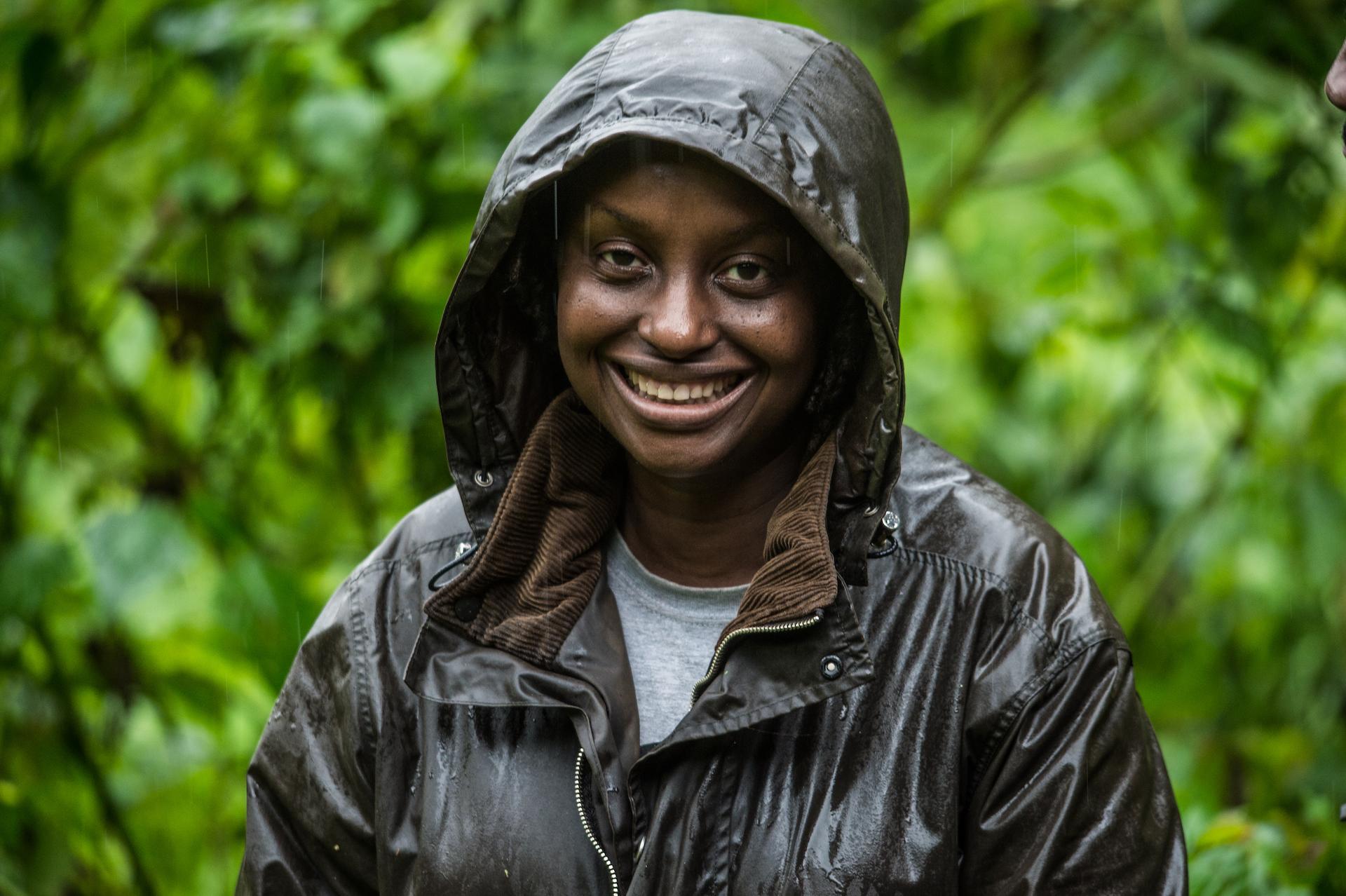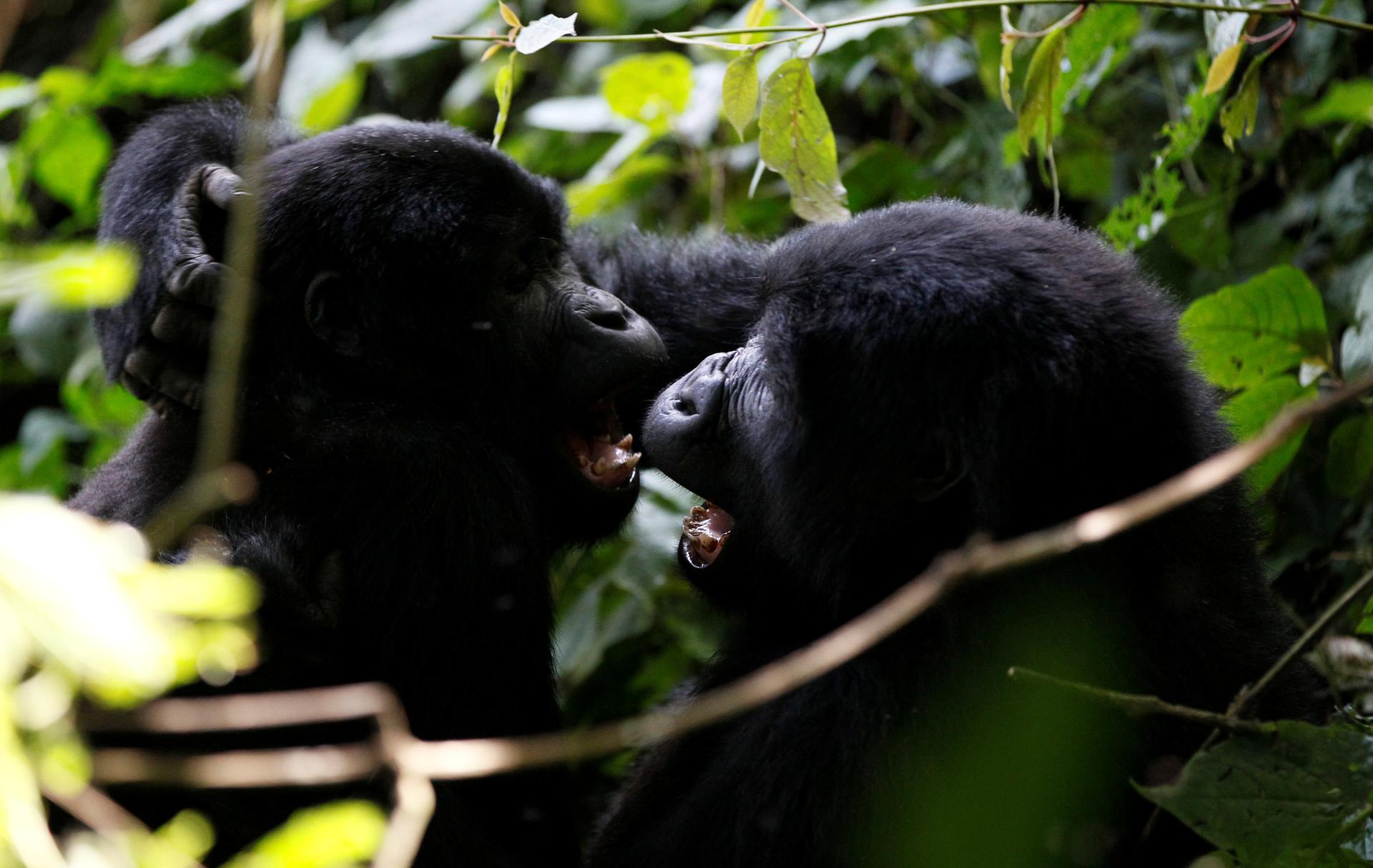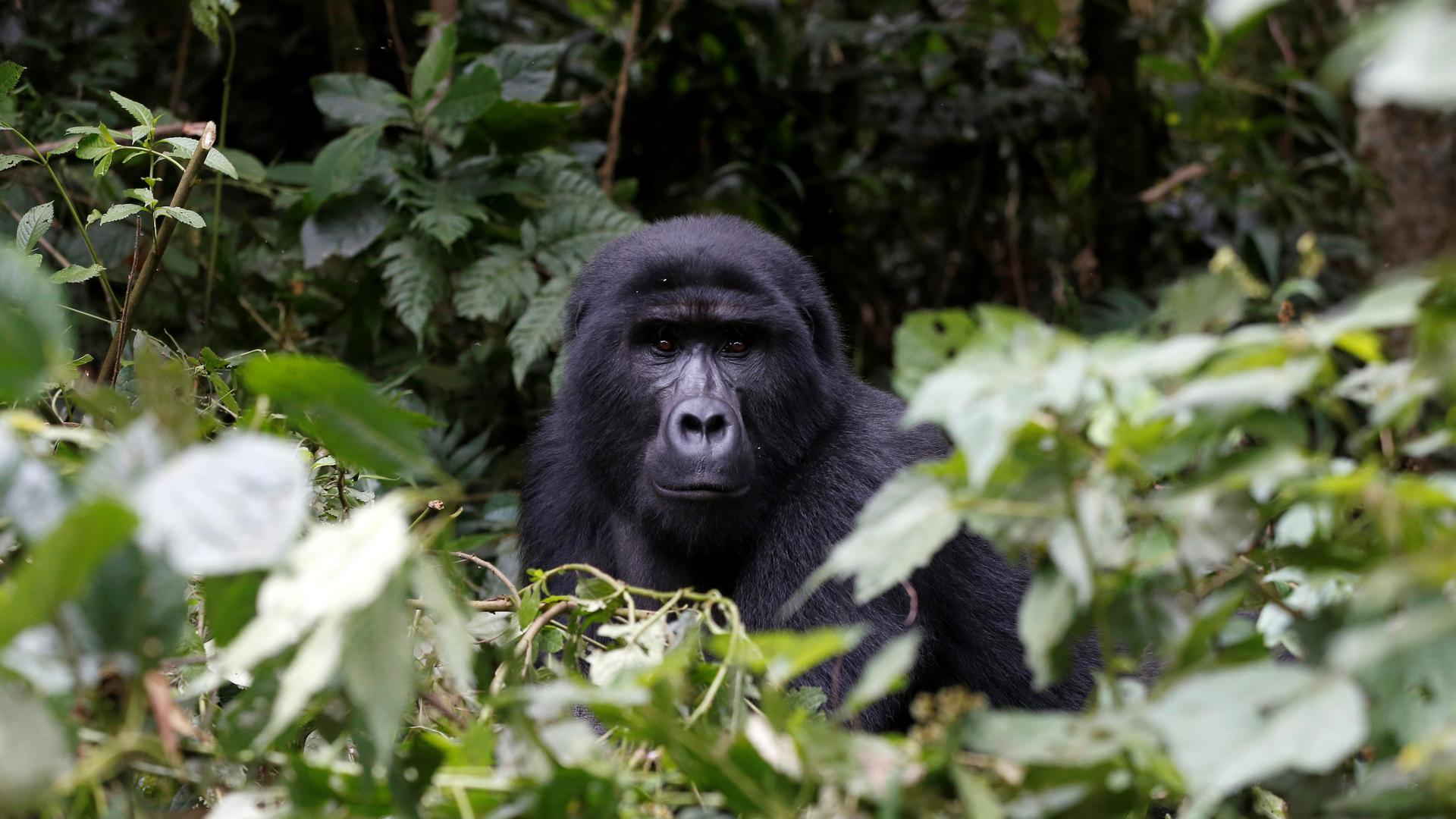It’s an understatement to say that the coronavirus is a public health crisis. But it’s not just humans at risk: apes are susceptible to the virus, too.
Related: This orangutan’s ‘personhood’ victory brings hope to US animal rights
Now, scientists and researchers who care for them are worried that COVID-19 could be devastating for endangered populations.
Related: Monkey see, monkey do: Islands in Panama offer a glimpse into animal innovation
Take mountain gorillas, for example. Only about 1,000 remain — roughly half of which live in Bwindi Impenetrable National Park in Uganda.
Dr. Gladys Kalema-Zikusoka is a veterinarian at Bwindi, as well as the founder of the nonprofit Conservation Through Public Health. She spoke with The World’s host Marco Werman about the risk that COVID-19 poses to gorillas via human transmission.

Marco Werman: Gladys, it might surprise some listeners that coronavirus could pass from humans to gorillas at all. How big of a threat to gorillas are diseases transmitted by humans?
Dr. Gladys Kalema-Zikusoka: We share over 98.4% genetic material with the mountain gorillas, and can easily make each other sick. That’s why I was hired as the first veterinarian for the Uganda Wildlife Authority when gorilla tourism began because it meant that people would get very close to gorillas and could easily give them a fatal flu, like the coronavirus.
If a gorilla were to contract COVID-19, could they become as seriously ill as humans? And how would you know?
Yes. If a gorilla was to contract COVID-19 they could become as seriously ill as humans if not worse — as we’ve seen in the past when they get a human disease. They’ll definitely show the same signs — coughing, difficulty breathing. What would make it much worse is gorillas can’t social distance. They live in a family group, where they move in a group of on average 10-15 gorillas through the forest, and they groom each other a lot. So, once one gorilla gets it, the rest are inevitably going to get it. We could lose a whole gorilla group, which would be terrible.

What steps are being taken to protect them?
The park staff has to visit the gorillas every single day to make sure that they’re healthy. Everyone’s temperature has to be taken before they go in. Then, on top of that, everyone has to wear a mask when they visit the gorillas, whether it’s a surgical mask or a cloth mask. Everyone has to wear a mask.
Related: 1 billion animals have died in Australian bushfires, ecologist estimates
Tourism revenue from visitors who want to see the gorillas counts a lot. What is the chain reaction to the whole ecosystem around the gorillas as that income dries up?
There’s been a big drop in income because of gorilla tourism being stopped because of the COVID-19 pandemic. People are really struggling. Whereas they would be able to sell accommodation and meals, people make crafts which tourists buy — they’re all really suffering a lot. And so the things that we’re trying to do as a nonprofit, and other groups, and the Wildlife Authority itself, we’re trying to look at alternative livelihoods that are not tourism-dependent. We have a social enterprise called Gorilla Conservation Coffee that supports farmers living around the park. Once someone buys coffee, there’ s a donation that goes back to the nonprofit to promote community health, gorilla health and conservation. So, it is possible to keep supporting the gorillas without having to visit them. And we’re really encouraging it, especially in this time of the COVID-19 pandemic, when communities don’t have any other income. Because when they don’t have income from tourism, they’re likely to go into the park to look for food to feed their families and to cut the trees.
Dr. Kalema-Zikusoka, is your concern for the gorillas moving forward about how long they will need protection from the coronavirus? OR do you have longer-term worries even once it seems the virus has been contained?
A big worry, of course, is always the threat of human disease. It’s an immediate threat for all habituated gorillas. But we need the tourists. The community needs the tourists because they need a sustainable source of income. The gorillas need the tourists because when the tourists come, they provide an economic incentive that stops people from going into the forest to poach. If a gorilla comes into their gardens, they won’t kill it, they’ll protect it, because they know the gorillas are bringing in income for their family and taking them out of poverty. Where there’s a lot of tourism for gorillas, in Bwindi and Virunga [National Park], they’re the only ones where the numbers are growing. All the other gorilla populations — the eastern lowland, western lowland, and Cross River gorillas — are decreasing in number, and there’s no tourism. So tourism is being seen as beneficial to gorilla conservation, but it has to be done very carefully.
This interview was edited and condensed for clarity.
Our coverage reaches millions each week, but only a small fraction of listeners contribute to sustain our program. We still need 224 more people to donate $100 or $10/monthly to unlock our $67,000 match. Will you help us get there today?
